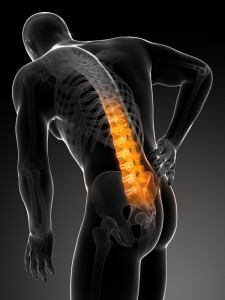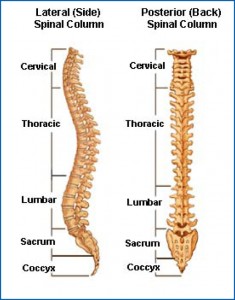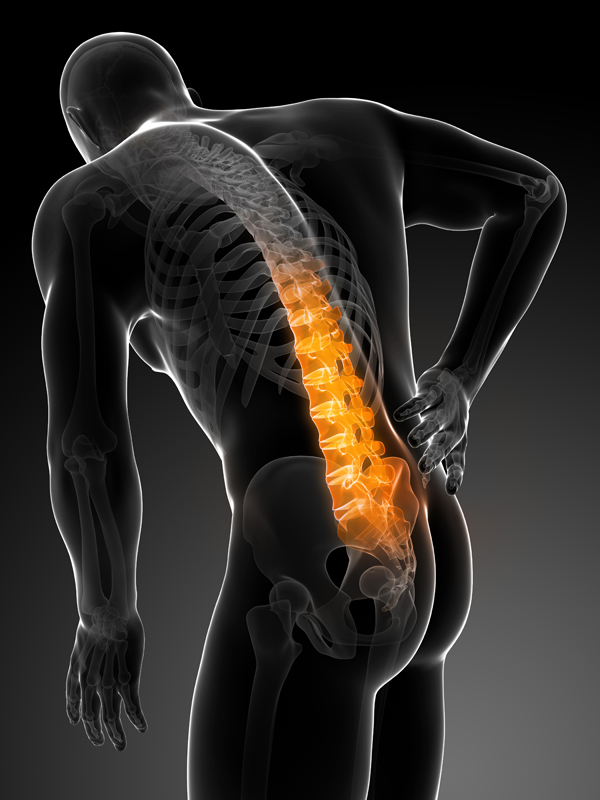 How does the back work?
How does the back work?
The back is a complicated structure built around the bones of the spinal column. The spinal column consists of 24 bones (vertebrae) sitting one on top of another. It sits on the pelvis and is topped by the skull. The bones of the spine are connected by discs at the front and facet joints at the back. The discs help to absorb loads on the spine and, with the facet joints, give the spinal column its flexibility.
Causes
For most people with back pain, there is no specific problem that you or your doctor can identify as the cause. This is known as non-specific lower back pain. There are a number of factors that can increase your risk of developing lower back pain, or aggravate it once you have it. These include:
- Standing, sitting or bending down for long periods of time – eg working all day at a desk without altering your position.
- Lifting, carrying, pushing or pulling loads that are too heavy, or going about these tasks in the wrong way – this can often lead to someone straining their back.
- Poor posture – not adopting correct postures during activity such as housework, decorating or gardening.
- Being overweight (BMI>30) – lower fitness levels and increased weight puts more demand on the structures of the lower back
- An accident or injury
What can be done to help?
Exercise is the most important way that you can:
- Ease stiffness and pain
- Build up muscle strength and stamina
- Improve your flexibility and general fitness
If your back pain lasts a while, lack of movement can cause the muscles to become weak. This makes it more likely that you’ll strain them in future. It’s important that you don’t rest for too long and keep moving.
Medication
Painkillers like paracetamol and ibuprofen may help and you should use them if you need to. Take them regularly and at the recommended dose to help you control pain and allow you to continue exercising.
- Don’t wait until your pain is severe before taking pain killers
- You shouldn’t take ibuprofen or aspirin if you’re pregnant or have asthma, indigestion or an ulcer until you’ve spoken to your doctor or pharmacist.
- Medication can have side-effects so you should read the label carefully and check with your pharmacist if you have any queries.
Physiotherapy
If your back pain is affecting your activity and is persisting, ask your GP about referral to a physiotherapist. Physiotherapy can help you to manage pain and improve your strength and flexibility.
A physiotherapist can provide a variety of treatments, help you understand your problem and get you back to your normal activities. Physiotherapists can also give advice on how you can prevent symptoms returning in the future, for example by teaching the correct way to lift heavy objects.
Treatments include:
- Exercise therapy
- Joint mobilisation
- Soft tissue massage
- Acupuncture / Electroacupuncture
- Pilates
- Postural advice / Education
- Electrotherapy
- Ergonomic assessment
If you are experiencing back pain, or have any other queries please phone us on 028 9261 1211 to speak with a Physiotherapist.

